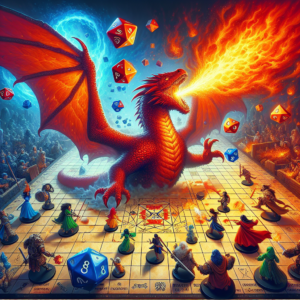
Introduction: Defining Intelligence & Its Types
Intelligence is a multifaceted concept often defined as the ability to learn from experiences, adapt to different environments, understand complex ideas, and engage in various forms of reasoning. Traditionally, intelligence has been categorized into several types, including:
1. Analytical Intelligence: Problem-solving and logical reasoning capabilities.
2. Creative Intelligence: The ability to generate new ideas and think outside the box.
3. Practical Intelligence: Skills required to deal with everyday tasks and real-world scenarios.
4. Emotional Intelligence: Understanding and managing emotions in oneself and others.
5. Social Intelligence: Navigating social situations and building interpersonal relationships.
Understanding these types helps highlight that intelligence is not confined to traditional reasoning or academic skills, but encompasses broader cognitive, emotional, and social competencies.
Key Habits to Boost Brainpower: Reading, Curiosity, Sleep
To enhance cognitive function and overall brain health, certain habits are particularly effective:
1. Reading: Engaging with diverse literature enriches vocabulary, comprehension, and critical thinking skills. It also fosters empathy by exposing readers to different perspectives.
2. Curiosity: Maintaining a sense of curiosity encourages lifelong learning and exploration. Asking questions and seeking out new experiences can lead to greater knowledge and improved problem-solving abilities.
3. Sleep: Quality sleep is essential for cognitive functions such as memory consolidation, emotional regulation, and overall brain health. Prioritizing adequate rest can significantly impact mental performance and clarity.
Cognitive Training: Puzzles, Memory Games, Learning New Skills
Cognitive training can enhance brain function and mental acuity through various activities:
1. Puzzles: Engaging in puzzles like crosswords, Sudoku, and other brain teasers helps develop problem-solving skills and boosts memory and logical thinking.
2. Memory Games: Activities that challenge memory assist in strengthening cognitive connections and improving recall capabilities.
3. Learning New Skills: Taking up new hobbies or educational pursuits enhances neuroplasticity, the brain’s ability to reorganize itself by forming new neural connections. This can include learning a musical instrument, new languages, or advanced technology.
Physical Health: Exercise, Nutrition, and Mental Wellness
The physical state of the body has a direct impact on cognitive function:
1. Exercise: Regular physical activity promotes blood flow to the brain, releasing endorphins that enhance mood and cognitive processes. It can also stimulate the production of brain-derived neurotrophic factor (BDNF), which supports neurogenesis.
2. Nutrition: A balanced diet rich in antioxidants, healthy fats, vitamins, and minerals is vital for brain health. Nutrients like Omega-3 fatty acids, found in fish, and antioxidants from fruits and vegetables support cognitive function.
3. Mental Wellness: Practices such as mindfulness, meditation, and stress management are important for mental health. Reducing stress levels can improve focus, decision-making, and emotional control.
Social & Emotional Intelligence: Building Relationships, Empathy
Developing social and emotional intelligence is crucial for personal and professional success:
1. Building Relationships: Effective communication and interpersonal skills enable better collaboration, networking, and conflict resolution, enhancing both personal and professional interactions.
2. Empathy: The ability to understand and share the feelings of others fosters compassion and connection, leading to deeper and more meaningful relationships.
Long-Term Strategies: Consistency, Growth Mindset, Lifelong Learning
To maintain and enhance intelligence over time, consistent strategies are essential:
1. Consistency: Regularly engaging in mental exercises, social interactions, and healthy habits can sustain cognitive performance and emotional well-being.
2. Growth Mindset: Embracing challenges and viewing failures as opportunities to learn encourages resilience and adaptability. A growth mindset fosters a love for learning and personal development.
3. Lifelong Learning: Committing to continuous education and skill acquisition helps keep the brain engaged and adaptable to change, ensuring cognitive vitality throughout life. This can involve formal education, online courses, workshops, or self-directed study.
By incorporating these strategies and focusing on a holistic approach to intelligence, individuals can cultivate their cognitive, emotional, and social abilities, leading to a richer and more fulfilling life.


